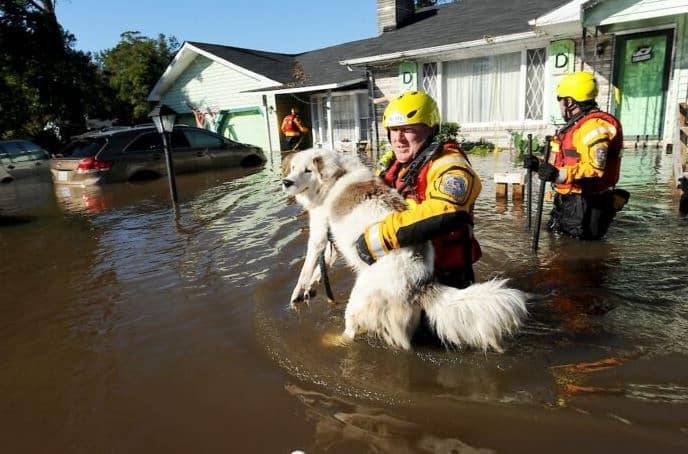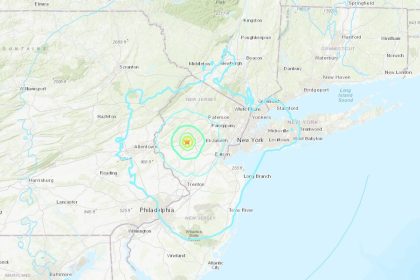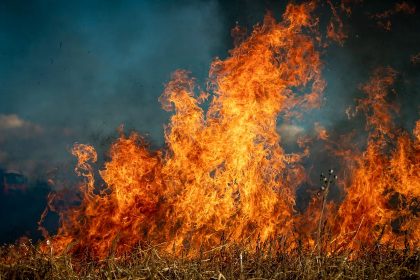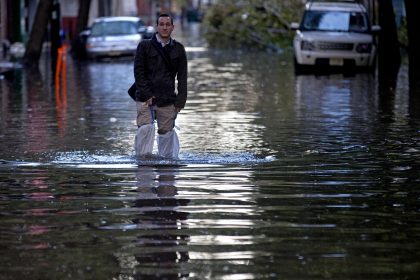Bipartisan PAW Act to Protect Animals Impacted by Disaster, Signed Into Law

WASHINGTON — President Joe Biden signed the bipartisan Planning for Animal Wellness Act into law this week, garnering praise from animal rights advocates who’ve argued for years that federal guidance on best practices to protect animals in emergencies and disasters is long overdue.
“By enacting the PAW Act, our leaders in Washington have taken an important step to reinforce this rescue work,” said Danielle Kessler, U.S. director of the International Fund for Animal Welfare, in a written statement on Friday.
“Through enhancing collective preparedness and acknowledging that adopting best practices is key to protecting both human and animal lives in the wake of natural disasters, this landmark measure represents meaningful progress toward ensuring a safer future for us all,” Kessler said.
“State, local, tribal, and territorial emergency managers work tirelessly every day to ensure the safety of the people in their communities during disasters and emergencies,” said Eric Thompson, president of the National Alliance of State Animal and Agricultural Emergency Programs.
“They recognize that in order to safeguard people, they must also address the issues and needs of pets and other animals in their jurisdictions. … The number and severity of devastating disasters experienced in this country over the last several years has highlighted the need for additional coordination for disaster planning and management, and this legislation provides a key opportunity to better prepare for and manage animal issues in disasters.”
The Planning for Animal Wellness Act, also known as the PAW Act, was championed in the U.S. Senate by Sens. Gary Peters, D-Mich., and Rob Portman, R-Ohio, and led in the House by Rep. Dina Titus, D-Nev.
It directs the Federal Emergency Management Agency to form a working group of animal rescue and disaster response experts.
This group of outside experts, which could include veterinarians, animal rescuers, academics and others, will determine whether current federal guidance is consistent with best practices in animal care for disaster preparedness, response and recovery.
If not, FEMA is directed to update its guidance, helping to ensure that families and pets affected by natural disasters can remain safe through effective planning.
“As a proud dog owner, it is concerning that animal and veterinary needs are often overlooked during disasters,” Portman said in a statement released after the bill was signed into law, noting that as a result, families in his home state and other animal lovers “will soon have up-to-date guidance for disaster preparedness.”
Titus, a member of the House Animal Protection Caucus, noted that she introduced the PAW Act in the House because she realized that when preparing for and responding to catastrophes, animal welfare often is overlooked.
“And sadly, some owners make the risky decision of refusing to evacuate in order to stay with their pets,” she said. “The PAW Act will ensure first responders and federal disaster response workers can help pet owners plan to keep every member of their family, even the furry and feathered ones, safe.”
“This new law will help make sure that FEMA and first responders in Michigan and across the nation can help protect every member of our families — even the ones with four legs and fur,” Peters agreed.
Shannon Walajtys, director of the disaster response and risk reduction program for the International Fund for Animal Welfare, said as climate change has continued, the need for federal action protecting the nation’s pets and other domesticated animals had become critical.
“Disasters are escalating in both frequency and severity, often devastating whole communities, and building resilience is key to protecting human and animal lives,” Walajtys said.
“Time and again we see people refuse to evacuate if they cannot bring their animals with them, including pets, livestock and captive animals in facilities. Furthermore, abandoned animals of all species in disaster areas can present unique challenges and dangers for first responders.
“This important new law will help to identify gaps and provide the guidance necessary to better protect animals before, during and following disasters, and the people who love them,” she said.
In 2016, the International Fund for Animal Welfare helped to save more than 300 domestic animals during devastating floods in Louisiana, and stepped in to help another 300 animals soon after that when Hurricane Matthew hit North Carolina.
In 2017, the organization cared for hundreds of animals saved from the Wall Fire in California, and helped to transport, care for, shelter and otherwise support more than 1,500 animals impacted by a hurricane the same year.
More recently, it has been on the ground in response to California’s Camp Fire and Dixie Fire, as well as deadly floods that swept parts of eastern Kentucky in mid-2022.
Sara Amundson, president of the Humane Society Legislative Fund, also applauded the president’s signing of the legislation.
“Americans consider pets to be our family and protecting the health and safety of animals in disasters is a matter of strong public interest,” Amundson said. “Approximately 70% of American households have pets, and past disasters have shown that failing to account for animals during times of crisis results in increased risk to human safety and compounds the psychological trauma suffered by those affected by the disaster.
“We are grateful to Sens. Peters and Portman for their leadership in seeking to ensure all pets as well as service animals and animals in zoos and other facilities are considered in disaster planning,” she continued.
“As we face increasingly intense storms, wildfires and other crises due to climate change, it’s welcome news that Congress came together on a bipartisan basis and the president has now signed the PAW Act into law.”
Dan can be reached at [email protected] and at https://twitte























